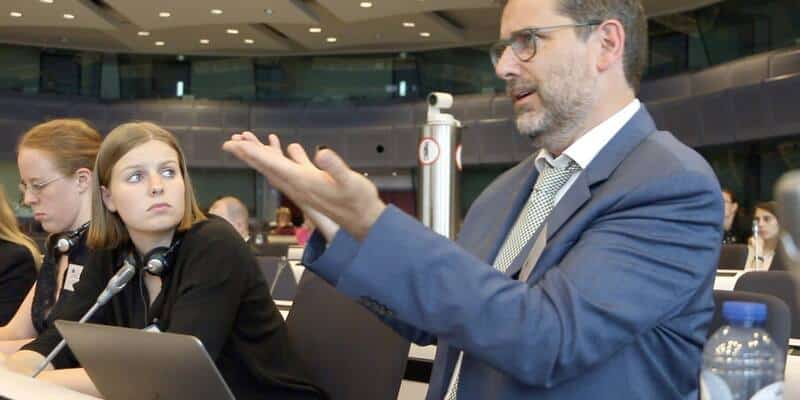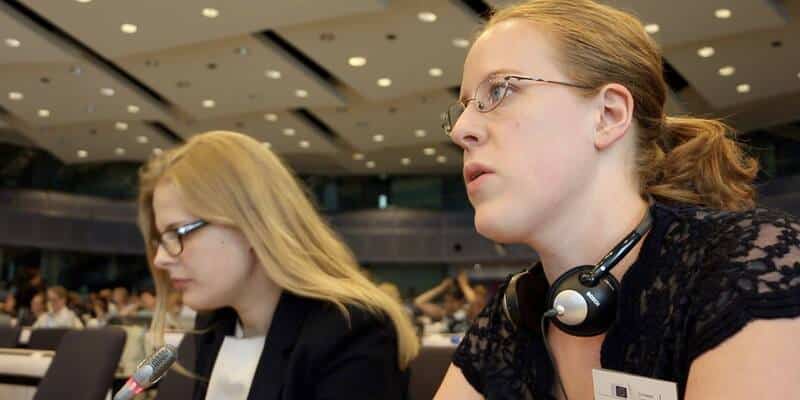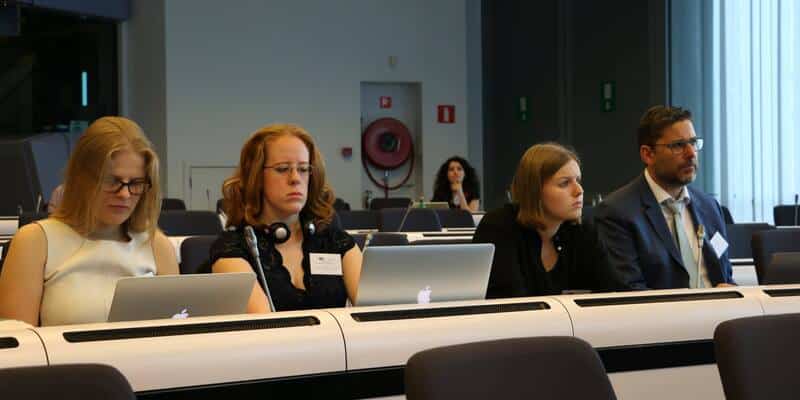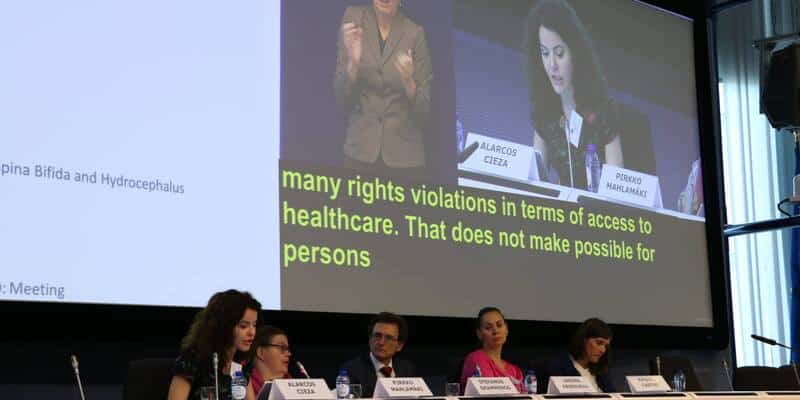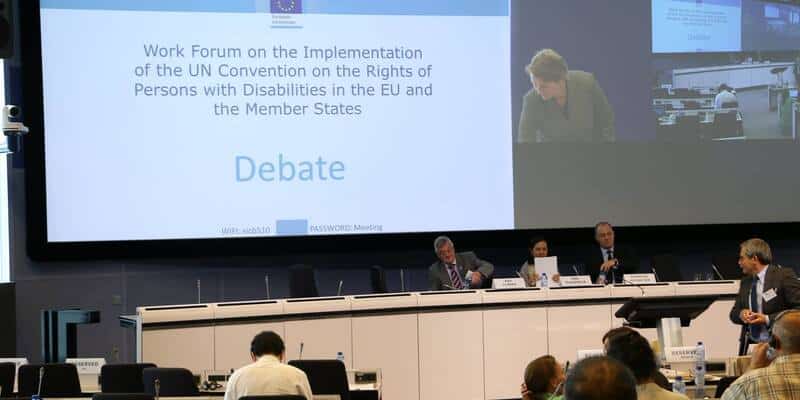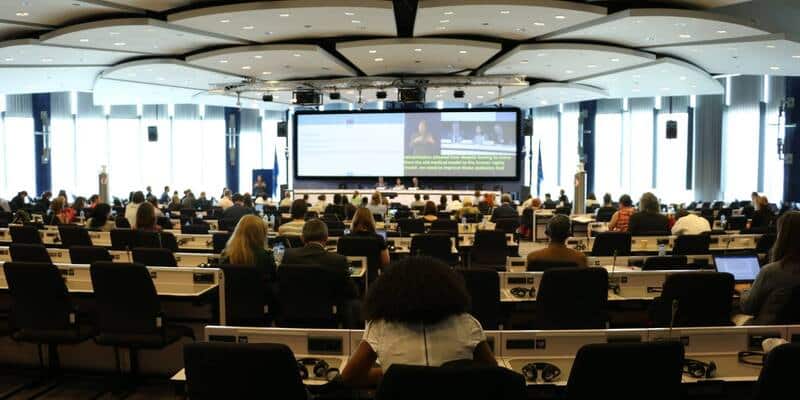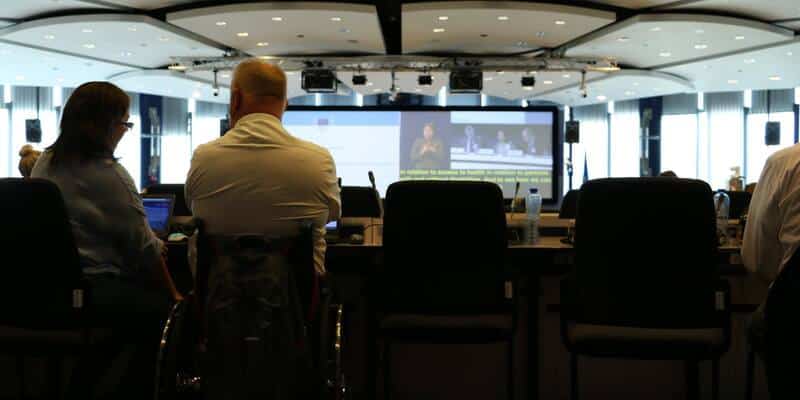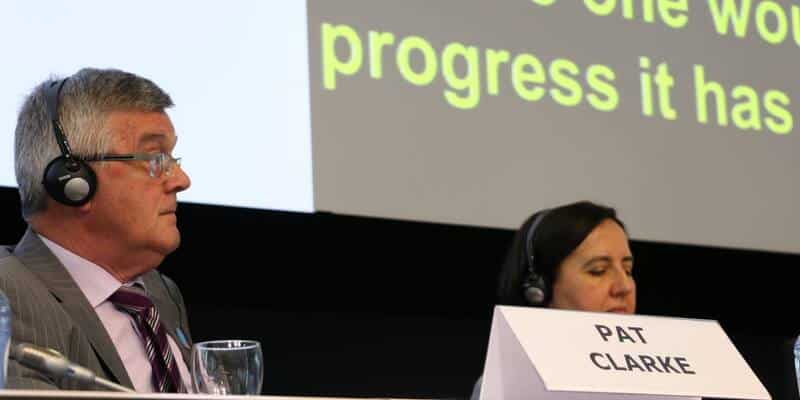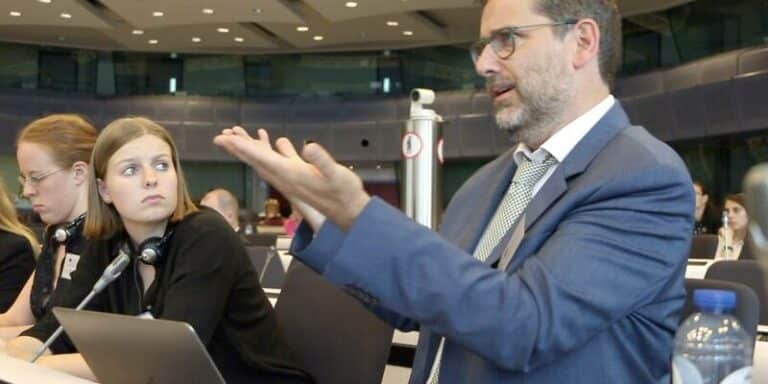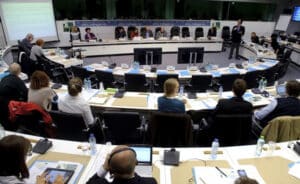On the 29th of May EUD participated at the Work Forum on the implementation of the United Nations Convention on the Rights of Persons with Disabilities (the Convention or UN CRPD), organised by the European Commission (EC or the Commission). Work Forum took place in Brussels and brought together representatives of those responsible for implementing and monitoring the UN CRPD on the EU as well as on national levels. The Work Forum takes place every year since 2010 and this year it focused on three topics: health, habilitation and rehabilitation of people with disabilities; disability awareness and training programmes; and the role of UN CRPD Committee.
The event was opened by Manuela Geleng, Acting Director Social Affairs, Directorate General Employment, Social Affairs and Inclusion (DG EMPL), European Commission. Mrs Geleng highlighted that finally all Members States of the EU have ratified the UN CRPD and are under an obligation to implement it. Since the European Union itself is a party to the Convention as well, it is aware of its commitment to cover all the recommendations issued by the UN CRPD Committee and aim at implementing them while adopting necessary measures such as European Disability Strategy, European Pillar of Social Rights, the European Accessibility Act and other relevant legislative measures. Moreover, Gunta Anca, Board Secretary of the European Disability Forum, emphasised that in order to implement the UN CRPD on the European level, it is necessary to make sure that the new Multiannual Financial Framework for the EU (MFF), which is currently under discussions, will not cut funding in healthcare and investments in equality, non-discrimination and accessibility for people with disabilities.
The first session of the Work Forum focused on health, habilitation and rehabilitation of people with disabilities. Pirkko Mahlamäki, Board Member of the European Disability Forum (EDF) gave an overview on CRPD Committee’s recommendations how to implement UN CRPD Articles 25 and 26 in the EU. It was highlighted that it is necessary to ensure full accessibility to all services. Organisations representing people with disabilities should be involved in designing, implementing and monitoring health programmes, services and devices in order to make sure they comply with human rights approach to disability. Moreover, training of health professionals is essential, so people with disabilities are not seen as persons suffering from diseases or as a burden but are recognised as rights-holders that cannot be treated without their prior consent. This is particularly important for women with disabilities, who often face forced treatments, abortions or forced sterilisations – such practices constitute an absolute breach of the UN CRPD. Mark Wheatly, Executive Director of EUD, added that there is a serious lack of accessibility for deaf women while seeking for information, therefore information in easy to read formats and sign language interpretation is absolutely necessary.
The second session, moderated by Nadia Hadad, Board member, of the EDF, focused on disability awareness and training programmes. One of many important points raised throughput the discussion, was the representation of people with disabilities in media. There are serious gaps regarding presence and roles played by people with disabilities. Broadcasters must be encouraged to increase involving people with disabilities as participants in shows and create initiatives where people with disabilities are presenters in TV shows.
The third panel moderated by Ima Placencia, Senior Expert at DG EMPL, EC discussed the role of the UN CRPD Committee. László Lóvaszy, Independent Expert to the United Nations CRPD Committee explained that the Committee is the body of independent experts which monitors the implementation of the Convention by the States Parties. It was explained that the Committee examines State Reports and makes suggestions and general recommendations on the reports and forwards these to the State Party concerned. While making concluding observations the Committee applies the same standards and pays equal attention to every State Party’s situation and achievements. It was mentioned that the new Committee will be elected this year and there are three European candidates standing for the election: Mr Jonas Ruskus from Lithuania, Mr Michael Debattista from Malta and Ms Dobroniega Trawkowska from Poland.
Work Forum on the implementation of the United Nations Convention on the Rights of Persons with Disabilities was a great opportunity for EUD to learn about practical implementation and monitoring of the Convention. EUD will be following relevant developments regarding the implementation of the UN CRPD on the European level.
